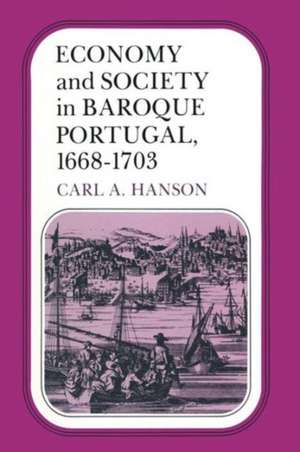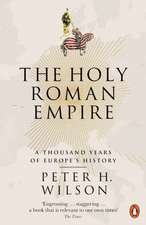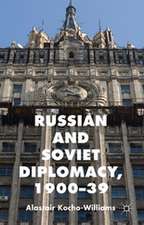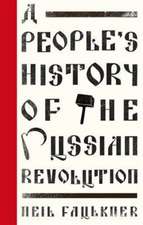Economy and Society in Baroque Portugal, 1668–1703
Autor Carl A. Hansonen Limba Engleză Paperback – 1981
Preț: 358.05 lei
Nou
Puncte Express: 537
Preț estimativ în valută:
68.57€ • 70.65$ • 57.44£
68.57€ • 70.65$ • 57.44£
Carte tipărită la comandă
Livrare economică 24 februarie-10 martie
Preluare comenzi: 021 569.72.76
Specificații
ISBN-13: 9781349058808
ISBN-10: 1349058807
Pagini: 366
Ilustrații: XIV, 366 p.
Dimensiuni: 152 x 229 x 22 mm
Greutate: 0.55 kg
Ediția:1st ed. 1981
Editura: Palgrave Macmillan UK
Colecția Palgrave Macmillan
Locul publicării:London, United Kingdom
ISBN-10: 1349058807
Pagini: 366
Ilustrații: XIV, 366 p.
Dimensiuni: 152 x 229 x 22 mm
Greutate: 0.55 kg
Ediția:1st ed. 1981
Editura: Palgrave Macmillan UK
Colecția Palgrave Macmillan
Locul publicării:London, United Kingdom















